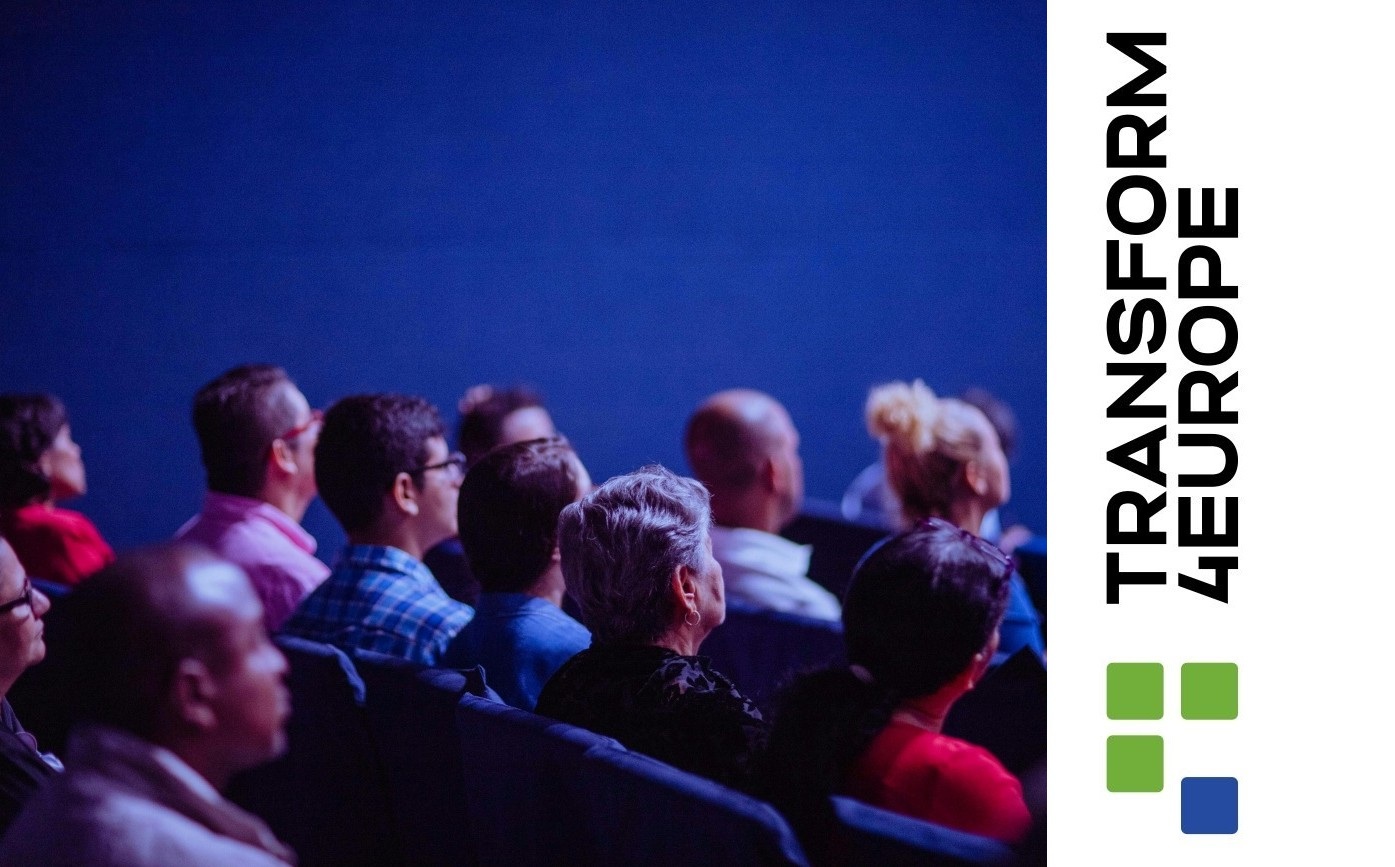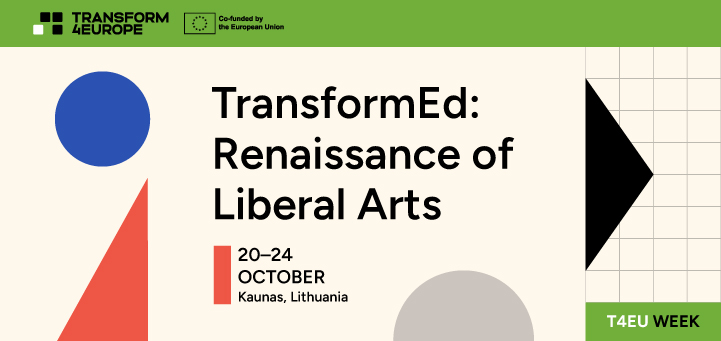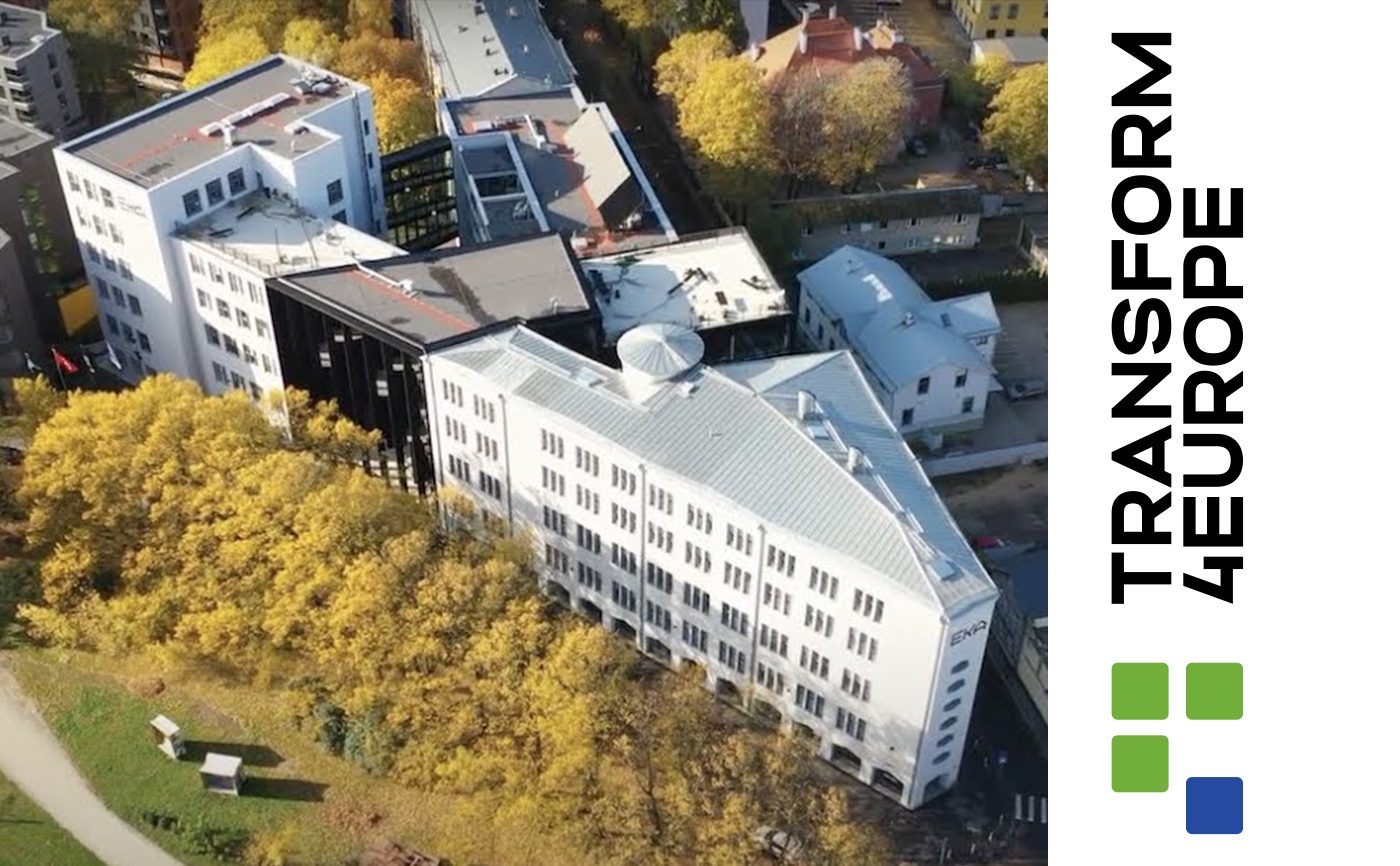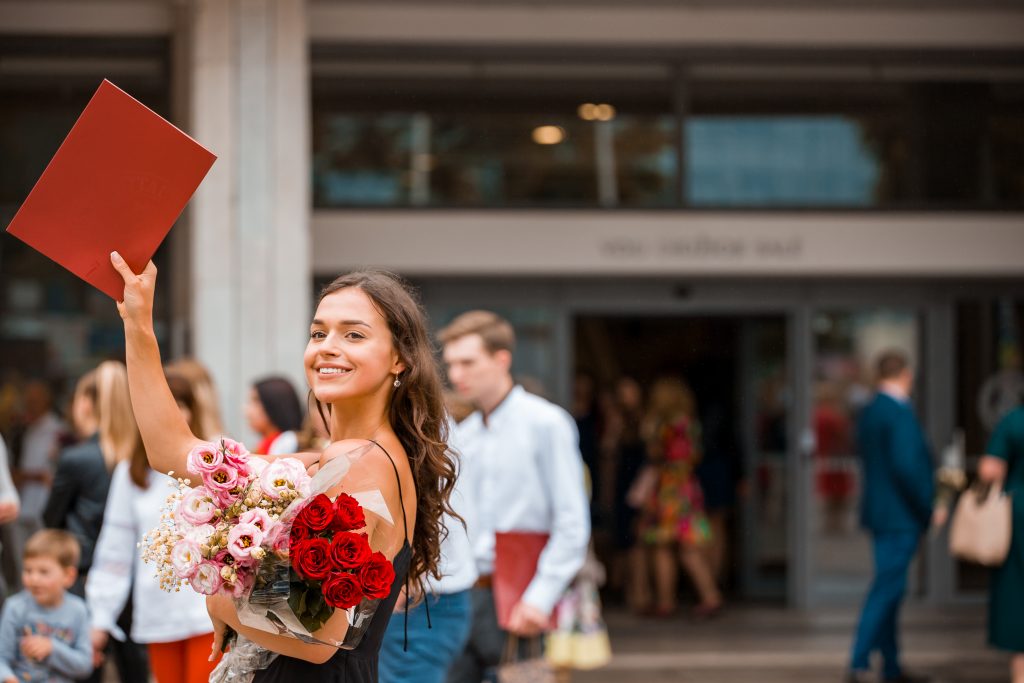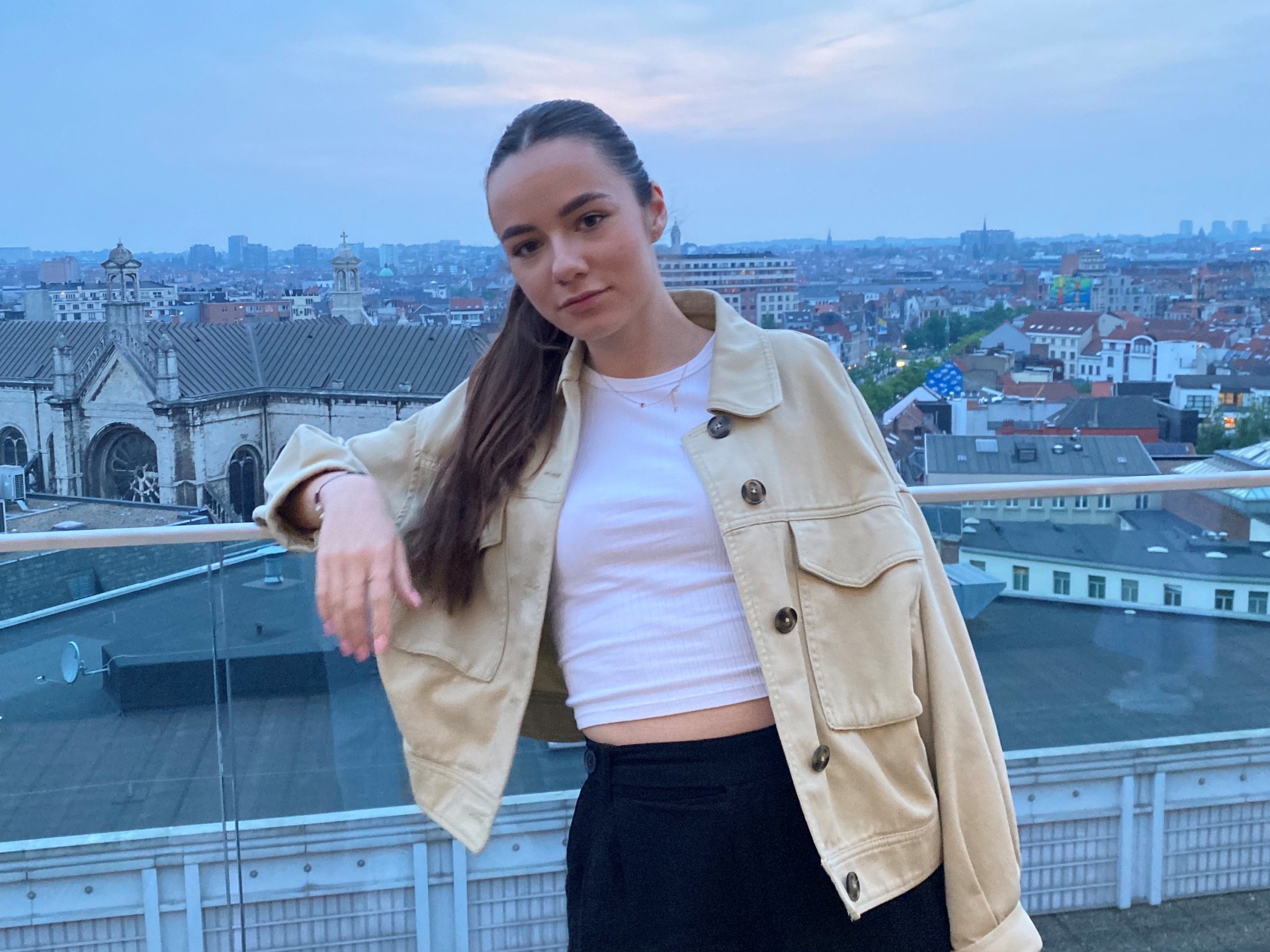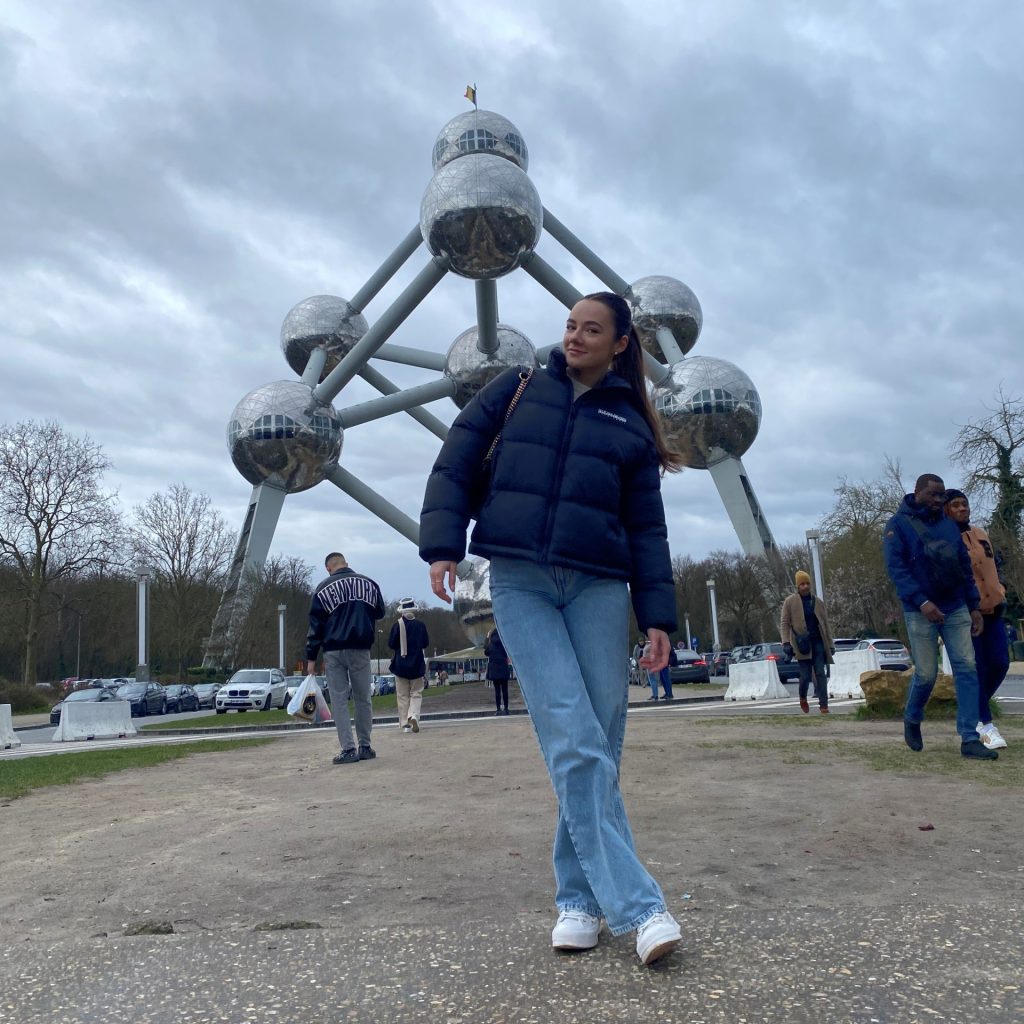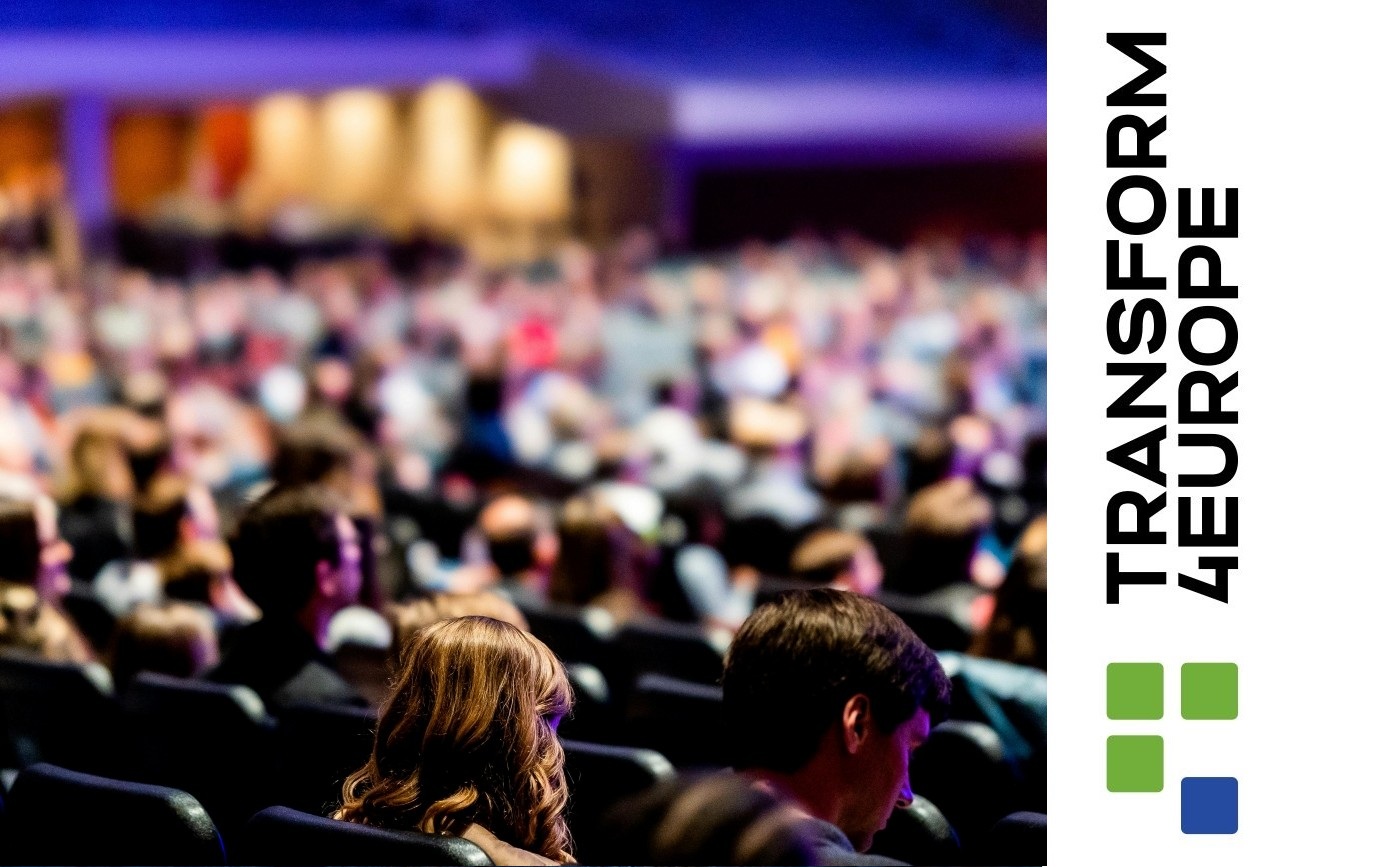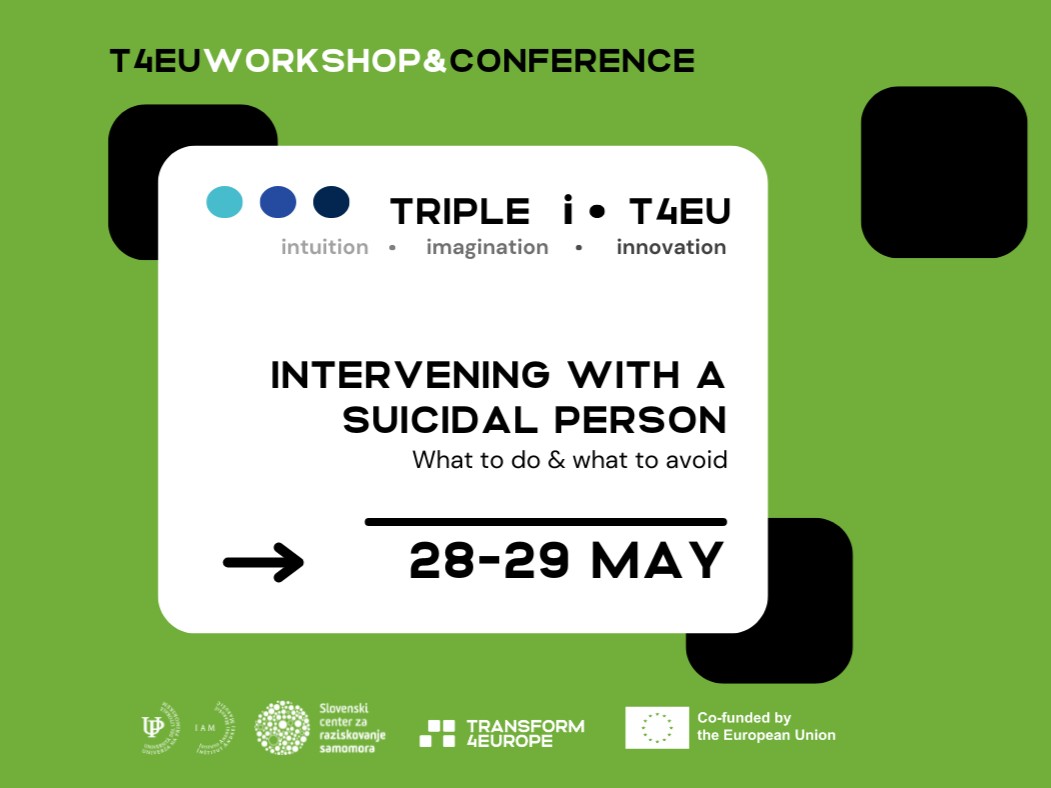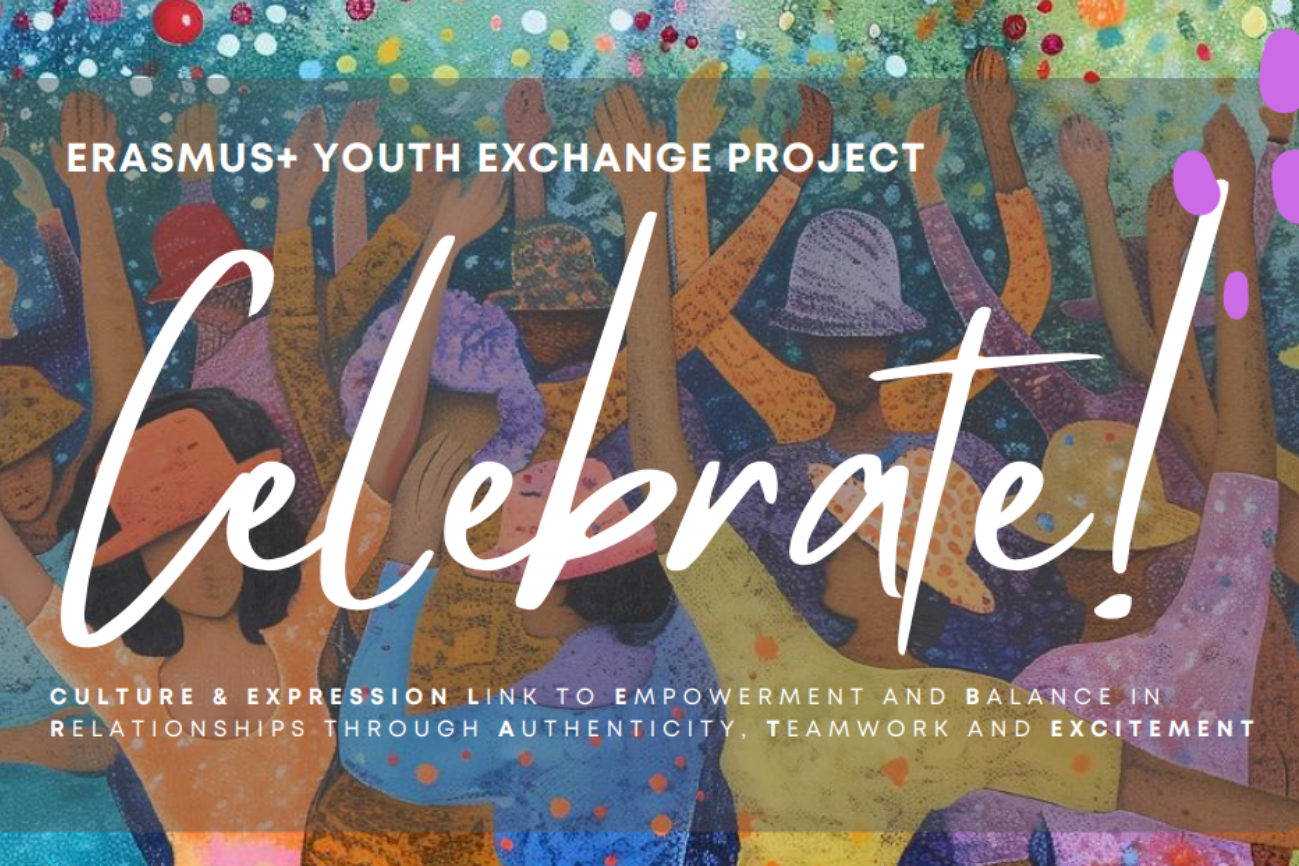Register Now: T4EU Strategic Policy Conference – Universities Shaping the Future through Innovation and Global Impact
Vytautas Magnus University (VMU) is pleased to invite you to register for the upcoming Strategic Policy Conference “Universities Shaping the Future: Building Resilient Societies through Innovation and Global Impact.” The conference will take place on October 21-22, 2025, at VMU in Kaunas, marking the conclusion of VMU’s presidency of the T4EU Alliance.
For almost a millennium, universities served as primary hubs for the advancement of intellectual thought and visionary leadership. Today, in the wake of escalating uncertainty and global crises, resilience has emerged as a vital societal asset and personal skill. Consequently, resilience has been chosen as the main axis of action during VMU’s presidency of the Transform4Europe (T4EU) Alliance in 2025, and will be the focal point of this conference. The European University initiative, currently uniting 65 alliances, was introduced to strengthen European higher education institutions and their role in boosting European identity, competitiveness, technological advancement, and overall societal resilience.
The main goal of the conference is to bring together not only academic leaders, experts, and students from the T4EU and other European University alliances, but also high-level European and Lithuanian political figures, global partners, and key stakeholders. Together, they will engage in discussions on resilience from multiple perspectives, including the global and European transformation of democracies, societies, and technologies. Drawing on the expertise and insights generated during the conference, a Policy Paper on Resilience Competency will be finalized and shared.
The conference will delve into a range of topics related to resilience, including Europe’s resilience in a shifting global order, the role of universities as stabilizing forces in democracies and conflict-affected societies, individual resilience in an unpredictable world, the importance of innovation and talent for Europe’s strategic future, and higher education’s contribution to societal renewal.
The conference program will be announced soon.
Join “TransformEd: Renaissance of Liberal Arts” – A T4EU Week at Vytautas Magnus University
Vytautas Magnus University (VMU) invites students to register for “TransformEd: Renaissance of Liberal Arts” – a T4EU Week in Kaunas, Lithuania, from October 20-24, 2025.
Imagine a university not just as a place to find answers, but as a space where we ask deeper questions. A place that shapes us not only through the knowledge we gain but also through the people we become. VMU fosters the idea of Liberal Arts – a comprehensive, interdisciplinary, and values-based educational model – inviting you on just such a journey.
In a world that encourages specialization and rushing, Liberal Arts offers a chance to pause. It challenges us to look inward and to the past, not to romanticize it, but to discover the tools needed for wise living and righteous action. Today, in an era of rapid technological change, uncertainty, and cultural fragmentation, the idea of a “renaissance” – a rebirth – becomes especially relevant. We return to the foundations of Liberal Arts: critical thinking, civic responsibility, philosophical reflection, artistic expression, and the ability to connect disciplines, contexts, and communities.
What to Expect at the “TransformEd” Week
Over five days, participants will explore subjects at the intersection of knowledge and perspective, tradition and innovation. There will be no final exams; the true outcome of this week will be measured in the depth of the questions you carry home. This week encourages deep reading, critical thinking, and intelligent disagreement.
Course Offerings
Students are invited to choose and participate in one of the nine intensive courses offered, all conducted in English:
- “Making Sense of Disagreement: How to Communicate Effectively with Epistemic and Moral Awareness”: This course defines conceptual approaches and practical interventions for communicating on complex issues and handling disagreements. It draws on theories from communication science, political science, psychology, sociology, and education, encouraging students to align their knowledge with their values through discussions of digitally mediated conflicts and dysfunctional communication.
- “The Idea of Europe”: Explore how the concept of Europe has evolved through philosophy, literature, politics, and cultural identity from antiquity to the present. This course examines foundational texts and thinkers, tracing how Europe has been imagined as both a geographical space and a shared civilizational project.
- “Critical Heritage”: An introduction to critical heritage studies, with a particular emphasis on addressing the complex and contested legacies of modernity. Through lectures, workshops, and site visits, students will engage with key concepts and best practices in the field.
- “Globalization and International Communication”: This course is designed to address the recent rise of transnational communication cultures in their global and local contexts, highlighting the significance of local political, economic, and cultural conditions.
- “Field Notes to Frontlines: Anthropology That Matters”: This intensive course explores the field of applied and engaged anthropology, focusing on practical methodologies, ethical considerations, and representation issues when working with diverse cultural and social groups.
- “Creating a Musical from Scratch: International Musical Theater Workshop”: This intensive workshop guides international students through the collaborative process of creating and performing an original musical production. Participants will explore all aspects of musical theater creation, culminating in a public performance of their original work.
- “GIS 360°: Maps That Transform Society”: Through an interdisciplinary lens, students will learn to harness spatial technologies to address issues like climate justice, urban inequality, public health disparities, and environmental conservation.
- “Biodiversity Conservation: Understanding, Threats & Solutions”: The aim of this course is to provide knowledge about biodiversity and its protection, focusing on basic concepts, spatial distribution, value, causes of extinction, protection methods, and the importance of monitoring and species restoration.
- “Climate Change Science and Solutions”: This course provides the fundamentals of climate change science, policy frameworks, consequences, and sector- and region-specific strategies for mitigation and adaptation.
Important Information
- You can rank your top 3 preferred courses when applying.
- Each course will include both online components (prior to the T4EU Week) and in-person sessions in Kaunas.
- Successful completion of a course and a knowledge test will grant 3-4 ECTS credits.
- Lectures will mainly take place in the mornings, with afternoons offering various optional activities, including sports, cultural, and scientific events.
- The minimum number of participants per course is 10. If this number is not met, the course may not run.
- To ensure balance, a maximum of 3 PhD students from one university can be accepted into the same course. In addition to their chosen course, PhD students will have dedicated events to present their research and network, such as a Science Slam, mixers, and other activities.
- All courses will be conducted in English.
Registration is open until June 22nd.
More information about the courses
Should you have any questions, please contact us at Transform4Europe@vdu.lt.
Apply Now: Students invited to Creative Circularity Summer Academy 2025
On 11-15 August, Estonian Academy of Arts is organizing the Creative Circularity Summer Academy 2025. Students are invited to join two of the academy’s activities: Green Transformer Student Challenge and Recrafted: A Workshop for Shoe and Bag Upcycling”. Application deadline is 13 June.
Students will be provided Erasmus funding for travel expenses and a mobility scholarship. For both activities, five VMU BA or MA students will be selected.
Green Transformer Student Challenge
The event is dedicated to exploring sustainable design, interdisciplinary collaboration, and real-world impact. The goal of the Challenge is to inspire students to explore and apply simple yet effective design opportunities to develop innovative and sustainable solutions.
During this intensive week, students will work in interdisciplinary teams to address real-world sustainability challenges. Guided by experienced mentors, students will participate in site visits, lectures, group work, and consultations to refine their design concepts. Each team will develop a creative and feasible solution to a specific sustainability issue. Final concepts will be presented to a panel of experts and evaluated based on innovation, feasibility, and impact.
The best teams will be recognized and awarded from a total prize fund of 5000 EUR, with winning teams also receiving the opportunity to further develop their ideas through the Student Initiative competition. This program offers not only practical experience, but also a clear pathway to bring ideas to life and contribute meaningfully to a sustainable future.
The program awards 3 ECTS credits, is conducted in English, and is open to BA and MA students from all disciplines. A virtual follow-up session will take place on August 22, 2025, offering feedback and further development opportunities.
Applications are open until June 13, 2025. Selected students will participate through the Blended Intensive Programme (BIP) under Erasmus+.
If you have any questions, email the organizers at Transform4Europe@vdu.lt.
Recrafted: A Workshop for Shoe & Bag Upcycling
This practical workshop centers on transforming old and discarded materials into unique, functional fashion pieces. Guided by expert shoemakers Kelian Luisk and Marika Jylhä, and bag designers Merle Visak and Sirle Rohusaar, participants will work in two groups:
- One group will repurpose denim to create shoe uppers and assemble them into finished shoes.
- The other group will craft bags using upcycling techniques.
The workshop will begin with an inspiring session by renowned designer Reet Aus, who will introduce the principles and importance of upcycling in fashion, highlighting sustainable design practices.
Throughout the week, students will collaborate in interdisciplinary teams, visit leading design studios, and develop innovative solutions to pressing environmental challenges. By the end of the workshop, they’ll have created their own upcycled fashion item – either a pair of shoes or a bag – demonstrating the potential of sustainable fashion.
The program awards 3 ECTS credits, is conducted in English, and is open to BA and MA students from all disciplines. A virtual follow-up session will take place on August 22, 2025, offering feedback and further development opportunities.
Applications are open until June 13, 2025. Selected students will attend through the Blended Intensive Programme (BIP) under Erasmus+.
If you have any questions, email the organizers at Transform4Europe@vdu.lt.
Invitation to the Webinar: “Next Chapter: Opportunities for VMU Graduates”
The VMU International Cooperation Department invites all international soon-to-be graduates, current students, and alumni to our upcoming webinar, “Next Chapter: Opportunities for VMU Graduates.” This event is designed to equip future graduates with the essentials for their next steps after graduation.
The webinar will take place on Thursday, June 5, at 10:00 a.m. EEST, online via Microsoft Teams.
Attendees will gain insights into admission pathways for Bachelor’s graduates to Master’s Degree programmes, explore PhD study opportunities at Vytautas Magnus University for Master’s graduates, and discover how to engage with our alumni network, utilize the alumni platform, and participate in the Unibuddy ambassador program. The session will also cover important aspects of Temporary Residence Permits and other migration questions, provide insights into career opportunities through a presentation from the VMU Career Centre, and introduce the DON@ project.
This webinar is highly recommended for:
- Soon-to-be VMU graduates
- Current students planning for life after graduation
- VMU alumni interested in exploring new opportunities
Please register here to secure your spot for this informative session.
We look forward to welcoming you!
VMU Student on Her Book-Worthy Exchange Studies in Brussels
“When I was selecting a country for my Erasmus+ exchange studies, I really wanted to go to Spain or Portugal – because of their exceptional architecture, languages, and warm climate. However, I ended up going to Belgium, which was actually my third choice. After getting there, I realized that it was one of the best decisions of my life. I could probably write a book about how much I enjoyed it”, says Ugnė Karkazaitė, a Public Communication (BA) student at Vytautas Magnus University (VMU). Last spring, as part of the Erasmus+ Programme, she studied at the Institute for Higher Social Communication Studies (IHECS) in Brussels.
Ugnė describes Brussels as a safe international city with no shortage of cultural activities and a vibrant nightlife. She was also impressed by Belgian cuisine. The student observes that Belgian culture is very diverse, particularly in Brussels, where the population includes people from many different parts of the world. Belgians are warm, pleasant, and peaceful – living up to the popular Lithuanian expression, “as calm as a Belgian”.
“I really loved the culture of the people in Brussels, they are much more open and warm. Public transportation is good: there’s the underground, trams, buses, and trains, so getting around is simple and convenient. I liked the active nightlife too: I’d heard that it was unsafe but I never felt that way at night – whether in the city centre or in other areas”, Ugnė assures, adding that Brussels offers a multitude of engaging activities both in central and more remote neighbourhoods.
Ugnė Karkazaitė
A priceless experience: volunteering with the Red Cross
Sharing her impressions of the studies, Ugnė notes that she liked the informal, warm interactions that the IHECS teachers had with the students and their genuine efforts to teach new things. The courses were conducted in English and were well-adapted for international students. Aside from a truly cozy atmosphere, she also enjoyed many of the taught subjects, including Civic Engagement, which included a requirement to complete at least 30 hours of volunteering to help others.
“My friend and I decided to help the homeless and refugees; we volunteered at several organizations, including the Red Cross. At times, it was difficult and uncomfortable to talk to the homeless, but in the end, it was an invaluable experience. It taught me to appreciate what I have and to stop complaining about trivial things because some people would dream of having problems like mine”, Ugnė remarks, pointing out that the volunteers were a large crowd and this was a great opportunity to meet new people from many different backgrounds.
The VMU student particularly enjoyed the Audio Narratology course, during which students analysed various sounds from films, audiobooks, or other audio narratives – the teacher explained how these sounds are created and how they inject more life into a movie one is watching or a story one is listening to. At the end of the semester, working in groups, the students created their own narratives where everything had to be described using just sound.
Brussels: a student-friendly city
The decision to spend four months studying in Brussels proved highly rewarding, the student confirms, explaining that the gained experience will be truly beneficial both in her further education as well as career development.
“I think that determination to travel as part of Erasmus+ may show the employer that this is a person who is not afraid of challenges. The lectures I had were truly relevant to me as future communication specialist: from digital marketing, where we learned about Google Ads, to audio narratology, which is important in social media content creation. Volunteering taught me how to interact with a variety of people. I also improved my foreign language skills significantly: not just English but French as well”, Ugnė Karkazaitė reveals.
Ugnė Karkazaitė
The Belgian capital, she argues, is a great choice for students, thanks to the many benefits available to them. “The city is student-friendly: you can get many discounts in shops, cafés, and bars. Public transport and museum tickets are much cheaper for students too. Also, some organisations offer food at reduced prices or bring together international students so they don’t feel lonely”, the student explains.
Exchange studies abroad: a worthwhile decision
Vytautas Magnus University, often ranked as Lithuania’s most international university, provides students with exceptional opportunities to travel abroad for a few months or even a year, giving them a taste of studies or internships across the globe: from Argentina, Malaysia, and South Korea to the U.S., Italy, and Mauritius. Every year, hundreds of VMU students make use of the opportunity to visit one of the university’s many international partners.
Ugnė encourages students to try exchange studies abroad: it is truly a worthwhile decision. “Go, and don’t hesitate! In my opinion, it is one of the best things that a young person could experience. Erasmus+ not only gives you a chance to study at the world’s best universities but also helps you grow as a person”, Karkazaitė claims.
Discussing her future plans, Ugnė is currently focused on completing and defending her bachelor’s thesis. After that, however, she is considering continuing her studies in Belgium.
“In the summer, I’ll try to apply for Master’s studies in Brussels. Of course, before that, I’ll need to take care of various documents. That’s not so easy to do when you’re also working on your bachelor’s thesis. So I’m not talking much about my future plans just yet”, she smiles.
Call for Registration: European University Alliance T4EU Innovation Agora
Registration is currently open for the Innovation Agora, which will take place during the Strategic Assembly meeting of the European University Alliance Transform4Europe (T4EU) on October 21–22 at Vytautas Magnus University (VMU) in Kaunas, Lithuania. The Strategic Assembly will also feature the T4EU Conference on Higher Education Transformations and the Global Partnerships Forum. The university community, as well as national and international partners, are encouraged to register for the Innovation Agora and present technological and non-technological innovations, initiatives, and to find partners for the further development of ideas.
The conference will focus on the same theme that underscores VMU’s presidency of the alliance this year: resilience, which has become critically important at both societal and individual levels. The conference will bring together leaders from academic institutions, experts, and students, as well as high-level European and Lithuanian politicians, global partners, business representatives, and other stakeholders. Resilience will be discussed in the contexts of digital and societal transformations, among others. Based on the insights from the conference, a strategic resilience policy document will be prepared.
Concurrently, the T4EU Innovation Agora will function as an open space for dialogue and collaboration, showcasing diverse resilience initiatives from across Europe. The organizers invite presentations in poster and interactive formats that highlight:
- Innovative educational practices and research findings;
- Innovations developed in collaboration with local and global partners (e.g., patents, prototypes, jointly developed technologies or solutions, etc.);
- Initiatives promoting resilience and solutions in well-being, governance, knowledge security, and digital transformations;
- Change-driven and impactful social initiatives from your institution.
Each T4EU partner is encouraged to nominate two strategic global partners or stakeholders to take part in this exchange. Participation in the T4EU Innovation Agora includes:
- A dedicated stand or booth space (table setup);
- Visibility during the main events attended by high-level guests, including government officials, EU representatives, academia, bisness & industistry, NGO;
- Poster exhibition or best-practice video showcase;
- On-request technical support (equipment availability to be discussed individually).
Up to 30 showcase spaces will be hosted within the main conference venue at VMU, ensuring high international visibility & matchmaking.
For registration and further information, please contact: kateryna.horiunova@vdu.lt.
For VMU Graduates – Last Chance to Apply for the Erasmus+ Traineeship Competition
VMU students graduating this semester are invited to take advantage of the final opportunity to apply for the Erasmus+ Traineeship Competition, which includes EU/EEA countries. Application documents can be submitted until May 31, 2025.
Main Features of the Erasmus+ Traineeship Competition
- The traineeship is available in all EU and EEA countries.
- The traineeship must be carried out within 12 months after graduation.
- The duration of the traineeship is from 2 to 4 months.
- Traineeship grant is provided to help cover travel and part of living expenses.
- This is a great opportunity to broaden your horizons, build international connections, and strengthen your professional path.
More information and selection criteria
Registration for inter-university elective study courses (modules) at Kaunas universities has started
Vytautas Magnus University (VMU), Kaunas University of Technology (KUT), Lithuanian University of Health Sciences (LUHS) and Lithuanian Sports University (LSU) continue cooperation for four years now and offer students to choose and study inter-university study modules at another university free of charge in the academic year 2025-2026.
The new modules will allow you to enrich your studies with new experiences, complete a course that is not directly related to your study programme, and study with students from another university. The newly acquired knowledge will help you expand your personal and professional competencies and provide you with additional career prospects.
You will study the optional course as an unclassified student and have the opportunity to submit it for recognition of the learning outcomes under your university’s internal procedures. Concluding an unclassified student’s contract and completing the study subject is free of charge.
Registration form. The registration deadline is 30 May 2025. Use your university email for the registration. The number of positions in the modules is limited.
List of courses. Before selecting a course, please read its description and consider in which semester (autumn or spring) it is taught. You can choose one course that corresponds to the cycle of your studies and is taught at another university.
VMU Study Department
Email: sd@vdu.lt
T4EU Welbeing: Intuition Imagination Innovation and Suicidology Conference
On 28-29 May 2025, Transform4Europe Alliance will organize T4EU Welbeing: Intuition Imagination Innovation and Suicidology Conference. This year’s theme is ‘Intervening with a suicidal person: what to do and what to avoid doing?’. Taking place over Zoom, the event will include not just numerous discussions from world renowned experts from the field of suicidology, but also a T4EU mental health workshop in the format of a group discussion. Those wishing to participate are invited to register.
The event is aimed at a wide audience, including students, professionals, academics and practitioners with an interest in suicidality and mental health within the Transform4Europe Alliance and beyond.
Why Join?
- Expert-Led Discussions: Gain insights from leading professionals in suicidology.
- Interactive Sessions: Engage in discussions and Q&A opportunities with speakers.
Intuition, Imagination and Innovation in Suicidology conference is an international annual conference organised by the Slovene Centre for Suicide Research (Andrej Marušič Institute, University of Primorska, Slovenia) in memory of the late Prof. Andrej Marušič (around the time of his birthday) to promote intuition, imagination and innovation in research and prevention of suicide and suicidal behaviour. This year’s special edition will see the conference organised as part of the T4EU effort to support mental health and university psychological counselling services.
During the last years, the conference has connected many people in the field of suicide research and prevention and will this further expand its mission within T4EU. The conference has developed into a platform for fruitful discussion between distinguished experts, interacting with young and perspective suicidologists or other eager professionals in the field.
The programme encompasses suicide research and clinical practice and covers theory, research, prevention and interventions in suicidology. The format allows speakers to present their expertise in depth while encouraging participants to contribute their perspectives. Challenges in both research and clinical settings are discussed in depth.
Students, professionals, scholars, practitioners or others interested in the topic of suicidal behaviours from different fields and different parts of the world are invited to attend the conference.
More detailed programme will be announced in the near future.
Opportunity for Youth to Join the “Erasmus+” Project “Celebrate!” in Norway
We’re sharing news about the opportunity to participate in the “Erasmus+” youth exchange project – “Celebrate!”, which will take place in Hamar, Norway, on June 9–18. Eligible participant age: 18–30 years.
The information package with all the necessary details about the project is available HERE.
Contacts for more information:
info@savanoriaikulturistai.lt
+37067165843


